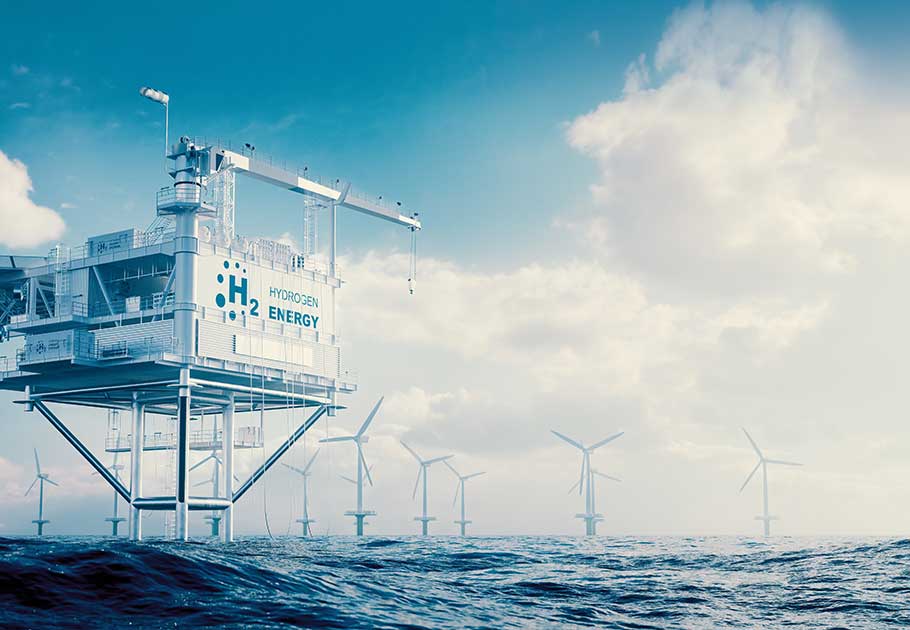Port Lafito
Port Lafito committed to continuing operations through Haiti’s waves of unrest
By Dr. Averne A. Pantin, Port Turnaround and Sustainability Expert
The Caribbean maritime industry in 2025 stands at a critical crossroads, driven by two powerful imperatives: environmental sustainability and maritime security. As the region works to strengthen its position in global trade, address climate change, and protect its Blue Economy, forward-thinking strategies are emerging. These will determine the Caribbean’s economic vitality and environmental integrity in the coming decades.
 Decarbonization:
Decarbonization:
Steering Towards a Sustainable Maritime Future
The global shift toward decarbonization is not bypassing the Caribbean. Recognizing its vulnerability to climate change, the region is taking proactive steps to reduce greenhouse gas emissions in maritime transportation. Regional efforts have intensified, emphasizing the integration of alternative energy sources such as biofuels, hydrogen, and electrification into maritime operations.
Workshops and regional programs have targeted port authorities, shipping companies, and governments, focusing on sustainable financing and the critical inclusion of women in the maritime workforce.
These initiatives are designed not only to meet global environmental standards but also to position Caribbean ports as competitive, eco-friendly hubs within the international logistics network.
At the same time, regional energy organizations have highlighted the transformative potential of biofuels in the transportation sector, especially for short-sea shipping and inter-island ferry operations. Transitioning to cleaner fuels will not only lower the region’s carbon footprint but also create a competitive advantage as global shippers increasingly demand green corridors and sustainable supply chain solutions.
Maritime Security:
Fortifying the Blue Economy
The Caribbean's maritime domain is vast, resource-rich, and increasingly targeted by transnational criminal activities. Threats such as drug trafficking, illegal fishing, piracy, and human trafficking have underscored the urgent need for coordinated regional security strategies.
In response, Caribbean governments have crafted a comprehensive Maritime Security Strategy, centered on regional collaboration, enhanced surveillance, intelligence sharing, and modern maritime domain awareness technologies. The strategy integrates environmental considerations, ensuring that enforcement efforts also protect sensitive marine ecosystems critical to tourism and fisheries.
An important dimension of this strategy is the growing partnership between Caribbean nations and global initiatives focused on “Blue Justice” — promoting lawful, sustainable, and equitable use of ocean resources. Through improved patrol capabilities, upgraded coast guard fleets, and smarter use of satellite data, the Caribbean is strengthening its defenses against maritime threats while securing its economic lifeblood.
Strategic Port Developments:
Enhancing Regional Connectivity
Seaport modernization is another key pillar of the region’s strategy. Caribbean ports have traditionally been constrained by limited space, outdated facilities, and inconsistent standards. In 2025, several countries are heavily investing in upgrading port infrastructure to handle larger vessels, improve turnaround times, and integrate smart port technologies. Island nations like Martinique are implementing ambitious development plans, expanding berths, deepening channels, and digitizing cargo handling operations. These initiatives aim to turn Caribbean ports into smarter, greener, and more resilient logistics hubs that can better compete for transshipment traffic against larger ports in North and South America.
Smart investments in cold chain facilities, cruise terminals, and renewable energy-powered ports are also designed to capitalize on both cargo and tourism opportunities. In an era where logistics reliability is paramount, and sustainability is non-negotiable, Caribbean ports are moving from “optional stops” to “strategic assets” in global supply chains.
Future Outlook:
Strategic Integration and Competitive Advantage
The maritime transformation underway in the Caribbean is not merely about compliance; it is about strategic positioning. By taking leadership in maritime decarbonization, security, and infrastructure development, the Caribbean is seizing an opportunity to future-proof its economy. The region’s maritime future will likely hinge on five interconnected imperatives:
Green Transition: Decarbonization efforts will define which ports thrive and which fall behind, as global shippers prioritize low-carbon shipping lanes.
Security and Rule of Law: Effective maritime security will be essential to sustain legitimate trade, attract investment, and protect marine resources.
Digital Innovation: Automation, blockchain for cargo tracking, and AI-based surveillance are becoming must-haves, not nice-to-haves.
Regional Collaboration: No single island can compete alone. Coordinated policies, harmonized standards, and shared maritime resources will yield far greater collective bargaining power and resilience.
Talent Development: Building a skilled maritime workforce — inclusive of women and young professionals — will be essential to operate and maintain modern, sustainable ports and fleets.
Conclusion:
Navigating Toward a Resilient Maritime Future
The Caribbean maritime industry is poised for transformation. Decarbonization, security, and infrastructure modernization are no longer optional endeavors but strategic imperatives. The region’s success will depend on proactive leadership, smart investment, and relentless collaboration across islands.
By navigating these currents with foresight and determination, the Caribbean can not only safeguard its oceans but also secure a prosperous, sustainable, and resilient future for generations to come.










